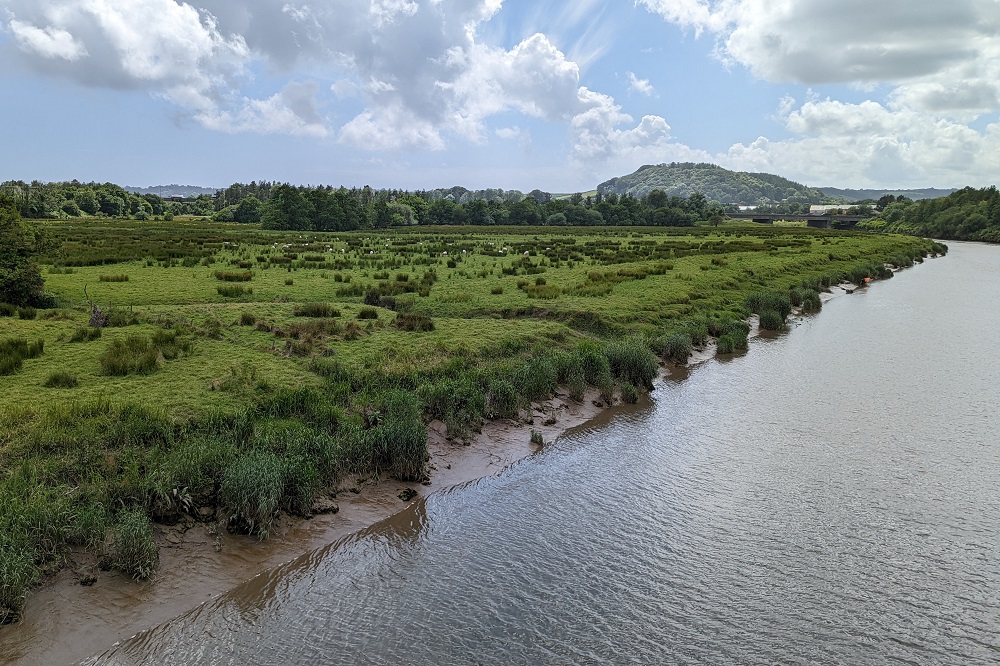Phosphate pollution trading scheme considered to speed up planning applications

Richard Youle, local democracy reporter
A scheme whereby developers would buy credits for new homes in river catchment areas affected by phosphate pollution is being explored in Carmarthenshire.
The idea is that wetlands and other nature-based ways of mitigating phosphates – present in sewage and agricultural run-off and damaging to rivers – would be created.
Those wetlands would then generate credits to be sold to developers as a means of mitigating the phosphate impact of new properties in river catchment areas designated as special areas of conservation (SAC).
The phosphate problem has halted or delayed development in several river catchment areas in Wales since the beginning of 2021.
A Carmarthenshire Council committee was told that a feasibility study has been commissioned to look into the credit trading idea where environmentally and economically feasible.
There are 79 planning applications for 138 new homes in SAC river catchment areas in Carmarthenshire which are being held up due to phosphate and other issues.
Councillors on the place, sustainability and climate change committee were told that credit trading would be an alternative to developers coming up with phosphate mitigation measures of their own for new schemes.
Monitored
Gail Pearce-Taylor, the council’s nutrient management officer, said of the wetland creation idea: “We can ensure that it’s all above board and that is is monitored and maintained in perpetuity.”
She said sites which flooded regularly were not suitable for new wetlands because the phosphate they stored would then be released into rivers.
There are four SAC river catchment areas in Carmarthenshire affected by the 2021 phosphate guidance – the Teifi, Towy, Wye and Cleddau.
Cllr Ann Davies, cabinet member for rural affairs and planning policy, said the Towy was not failing phosphate breaches but was treated as if it was.
She said the Home Builders Federation and the council were “very frustrated” and that residents were “very annoyed” given how long the phosphate planning delays had gone on for.
She added: “It is complex, but there is a way forward.”
Calculator
The council has created a calculator for developers to quantify how much phosphate their scheme would generate. The committee heard that the calculator has been accepted by the Welsh Government and Natural Resources Wales (NRW) and was being rolled out to the rest of Wales.
Cllr Davies said 65% of the phosphate pollution in the Teifi was from sewage and that agriculture was not the problem.
Ms Pearce-Taylor said the proportion of phosphate pollution from sewage in the Cleddau was a lot less than 65%, and that the percentage wasn’t yet known in the Towy.
Phosphate-stripping technology can be added to sewage treatment works which don’t have it, but Ms Pearce-Taylor said nature-based solutions – including tree buffers along rivers – conferred other benefits like new habitats and carbon storage.
Councillors wanted to see fewer sewage discharges into rivers than currently. A Senedd committee said there were more than 105,000 incidents of untreated sewage being dumped into Welsh watercourses in 2020.
Cllr Gareth Thomas said sewage also contained heavy metals – and he asked colleagues how many times they had seen sewage in the Towy when they attended meetings in the adjacent County Hall.
“It can’t be healthy,” he said. “I would rather take a bath in my slurry pit than a bath in the Towy at that time, to tell you the truth. I know that sounds a bit extreme but I think there’s more germs there than in my slurry pit.”
Toilet paper
Cllr Neil Lewis said he had canoed through toilet paper on the Towy at Llangunnor, Carmarthen, and asked if sewage discharges could be stopped.
Ms Pearce-Taylor said this was a “no-brainer”, and that Welsh Water has put forward a “huge” investment programme to update its infrastructure. But she said the bigger the programme, the more costs would increase for consumers.
She said the public could help in terms of what they flushed down the toilet.
“An awful lot of what ends up in rivers should not be there in the first place,” she said.
Support our Nation today
For the price of a cup of coffee a month you can help us create an independent, not-for-profit, national news service for the people of Wales, by the people of Wales.







